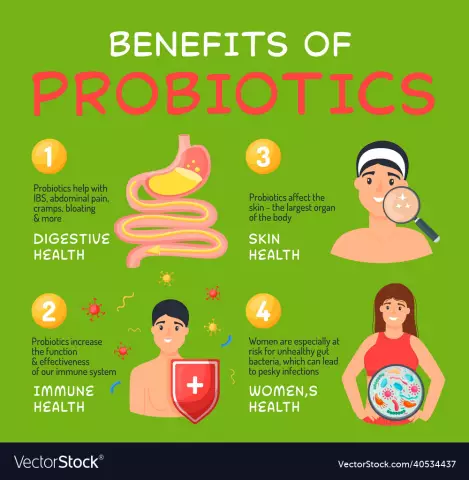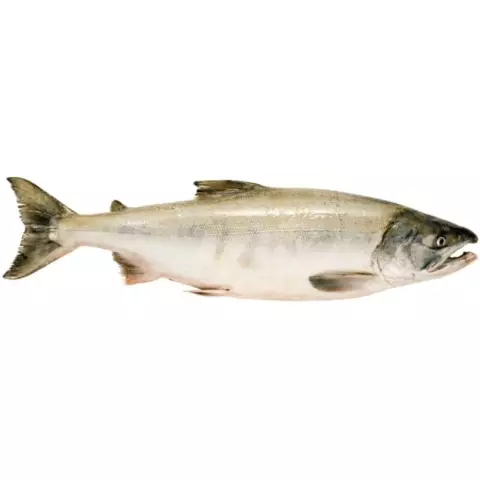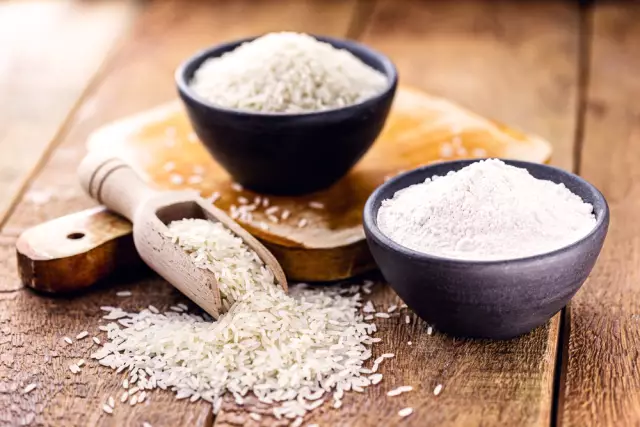- Author Rachel Wainwright wainwright@abchealthonline.com.
- Public 2023-12-15 07:39.
- Last modified 2025-11-02 20:14.
Sorbitol
Description of substance

Sorbitol - a substance otherwise called glucite, is a six-alcohol alcohol with a sweetish taste, registered as a food additive E420. This crystalline substance is white, solid, odorless, has a pleasant taste and dissolves well in water. The sweetness of sorbitol is about half that of regular sugar.
The content of sorbitol is high in the fruits of mountain ash, from the Latin name of which ("sorbus aucuparia"), it got its name. However, sorbitol is industrially made from corn starch.
The chemical formula of the substance is C 6 H 14 O 6
Food sorbitol is a natural sweetener, complexing agent, emulsifier, texturer, humectant, color stabilizer and dispersing agent. Food sorbitol is almost completely absorbed (by 98%) by the body and compares favorably with synthetic substances in its nutritional characteristics: the calorie content of sorbitol is 4 kcal / g of substance.
The use of sorbitol, according to experts, helps to save the body's use of B vitamins - pyridoxine, thiamine, biotin. In addition, it was found that taking a food supplement promotes the growth of intestinal microflora that synthesizes these vitamins.
Despite its pronounced sweet taste, sorbitol is not a carbohydrate, so that it can be eaten without harm to health for people with diabetes. The substance retains its properties when boiled and is successfully added to products that require heat treatment.
Physicochemical parameters of sorbitol
The substance has the following physical and chemical properties:
- The sweetness of sorbitol is 0.6 times that of sucrose;
- The energy value of the food additive is 4 kcal or 17.5 kJ;
- Solubility (at a temperature of 20 degrees Celsius) - 70%;
- The recommended daily intake is 20-40 g.
Sorbitol use
Due to its properties, sorbitol is often used as a sugar substitute in the production of dietetic food and drinks, chewing gum, confectionery, jelly, marshmallow, sweets, canned fruits and vegetables, minced products, soft drinks. With its ability to draw moisture from the air (hygroscopicity), sorbitol prevents premature hardening and drying out of food.

In pharmaceuticals, sorbitol is used as a structurant and filler in the manufacture of gelatin capsules, vitamin preparations, creams, ointments, pastes, and cough syrups. It is also used in the production of vitamin C (ascorbic acid).
In addition, sorbitol is used as a hygroscopic substance in the cosmetic industry (production of creams, toothpastes, masks, powders, deodorants, lotions, shower gels, shampoos), as well as in the textile, leather, tobacco, paper and chemical industries.
Sorbitol (E 420) was awarded the status of a food product approved for use and safe for human health by experts from the European Society for Food Additives.
The benefits and harms of sorbitol
According to reviews, sorbitol has a pronounced laxative effect, which increases in direct proportion to the amount taken by the body. Doses of the substance in the range of 40-50 grams can contribute to the appearance of flatulence, doses over 50 grams lead to a strong laxative effect. This ability of sorbitol makes it possible to use the substance as a medicine to combat constipation. Unlike most laxatives, sorbitol is not poisonous, so the substance is used in the treatment of alcohol poisoning.
However, consuming sorbitol in large quantities can cause gas, stomach pain, diarrhea, worsening irritable bowel syndrome and impairment of fructose absorption. An excess amount of a substance in the cells of the body can harm it - sorbitol contained in the cells of the nerves and eyes can cause neuropathy, as well as diabetic retinopathy.
Food sorbitol has a choleretic effect, which makes it possible to use it in tyubage - a washing procedure leading to cleansing of the liver, kidneys, gall bladder and bile ducts.
Despite the fact that the substance, in fact, is not sugar, it is not recommended to eat foods containing sorbitol in excess for obese people.
Found a mistake in the text? Select it and press Ctrl + Enter.






